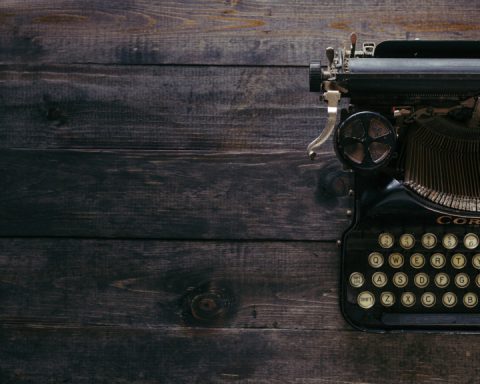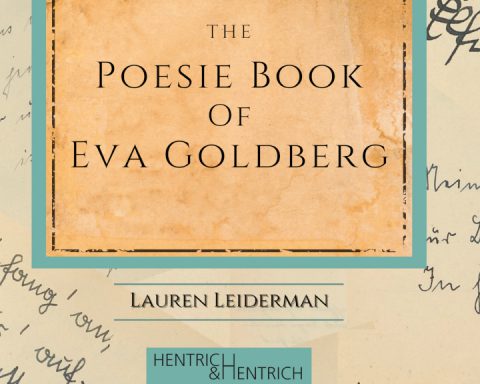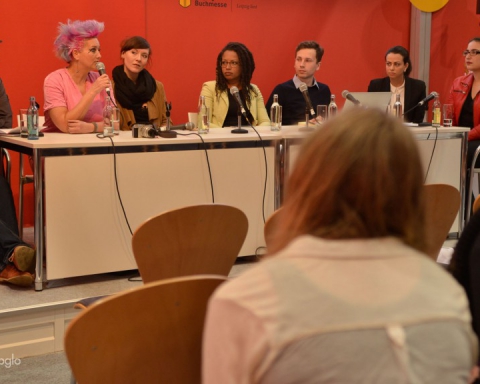In his blog post of January 24th, 2016, Christjian Robert Broerse gave us a fascinating report of the reading he had done over the past year. The list includes Nabokov’s “Lolita”, which Christjian says he took up when, in December 2015, he found a copy “stubbornly staring” at him in the Leipziger Städtische Bibliotheken – a “divine intervention”.
It may have been due to another intervention of the sort that I, without knowing it, read “Lolita” almost at the same time as Christijan, in January 2016. So I will depict here some of my own thoughts on that remarkable novel.

“Why would I want to read about a forty-year old man lusting after a twelve-year old girl?”
This is how Christjian, at age eighteen, rejected any engagement with “Lolita”. Today, he calls that attitude “half-stupid” and “immature”. It indeed wouldn’t make sense to dismiss a book just because it’s a pedophile’s story.
Pedophilia is reprehensible, without a doubt. But the same goes for murder, and still we enjoy reading crime thrillers and watching “Tatort” on Sunday nights. Even the cannibalistic “Silence of the Lambs” (1991) and its sequels have a huge number of fans. Nor does Nabokov’s “Lolita” (1955) argue in favor of pedophilia. On the contrary, already in the second sentence, the narrator, pedophile Humbert Humbert, refers to Lolita, the girl he has been obsessed with, as “my sin”.
The accusation of pornography, which made it hard for Nabokov to find a publisher, is equally untenable. “I gave her to hold in her awkward fist the scepter of my passion” (I, 4); “I saw again her lovely indrawn abdomen where my southbound mouth had briefly paused” (I, 10): In the whole text you won’t find many such passages, and none more erotically graphic than these quotes. Back in the 1950s, Marilyn Monroe posters were more obscene than that, and today – well, where to start?
With their linguistic elegance, however, those quotes may show us the key to understanding “Lolita”. In Christjian’s words, “Nabokov is so good a writer you forget you just read the confessions of a pedophile”.
I, too, was impressed by Nabokov’s style. In fact, I don’t remember another author who uses such an extremely varied vocabulary, with the exception of Shakespeare. And this despite the fact that English, in which he wrote “Lolita”, was not Nabokov’s first language: it was Russian.
He had learned English and French from early on from the governesses and private tutors at his wealthy Saint Petersburg home, and by the time he composed Lolita, he had been living in exile in the U.S. for about a decade. But for all that, the mastery of English that “Lolita” reveals commonly is utopian for any non-native speaker.
Besides Nabokov, indeed, very few world-class writers used in their work or part of it languages other than that of their parents, examples being Samuel Beckett (Nobel Prize in Literature 1969, native tongue English, writing partly in French) and Elias Canetti (Nobel Prize in Literature 1981, native tongue Judeo-Spanish, writing in German). I would be avid to know Nabokov’s secret for learning, if it was more than a supernatural talent.
He himself would have rejected such praise. In his afterword, “On a Book Entitled Lolita” (1956), he complained that by fleeing from Russia after the Red Revolution, he had to “abandon my natural idiom, my untrammeled, rich, and infinitely docile Russian tongue for a second-rate brand of English”.
“Lolita” a second-rate brand of English?
The “richness” of Nabokov’s Russian, to be found in his early works, must then exceed all imagination. At least, the author admitted that “Lolita” was the “record” of his “love affair” with English. His eloquent English may have been, then, to create the “aesthetic bliss” Nabokov defined, in his afterword, as the sole purpose of any fictional text.
To be sure, I don’t like everything about that “eloquence”. Above all, it’s overburdened with uncommon, stilted expressions. Humbert, the narrator, it’s true, is a passionate literary scholar, and Nabokov wants to make that clear through a corresponding diction. But a word like “semitranslucent” (I, 11), for instance, belongs in a scientific treatise rather than in a novel.
Even Lolita gets annoyed when Humbert speaks of her “coevals”: “Of my what?” she retorts, “Speak English” (II, 1). I don’t condemn such expressions per se; it’s only that from a certain density onward, they do not cause me “aesthetic bliss” but fatigue, since aesthetic style also means saying a lot by the simplest means.

Nonetheless I still agree with Christjian’s remark that “Lolita” can make you “more or less drunk on the prose”. This is, on the other hand, where the most cogent argument against that novel attacks: Is it not immoral to gain “bliss”, or content drunkenness, from a voluptuary’s recollections of how he for years abused a child?
There is a moral problem indeed, but commentators such as U.S. philosopher Richard Rorty (1989) have pointed at an interpretation that would turn even that problem into another asset of Nabokov’s “Lolita”: In the real world, no one is totally evil or good; and pedophiles, too, have their contradictions, as disturbing as it may be. Contradictions are a challenge our world poses to us, so they need to be dealt with by, among other things, literature. Literature that does not want that, by contrast, simply stops being relevant.










